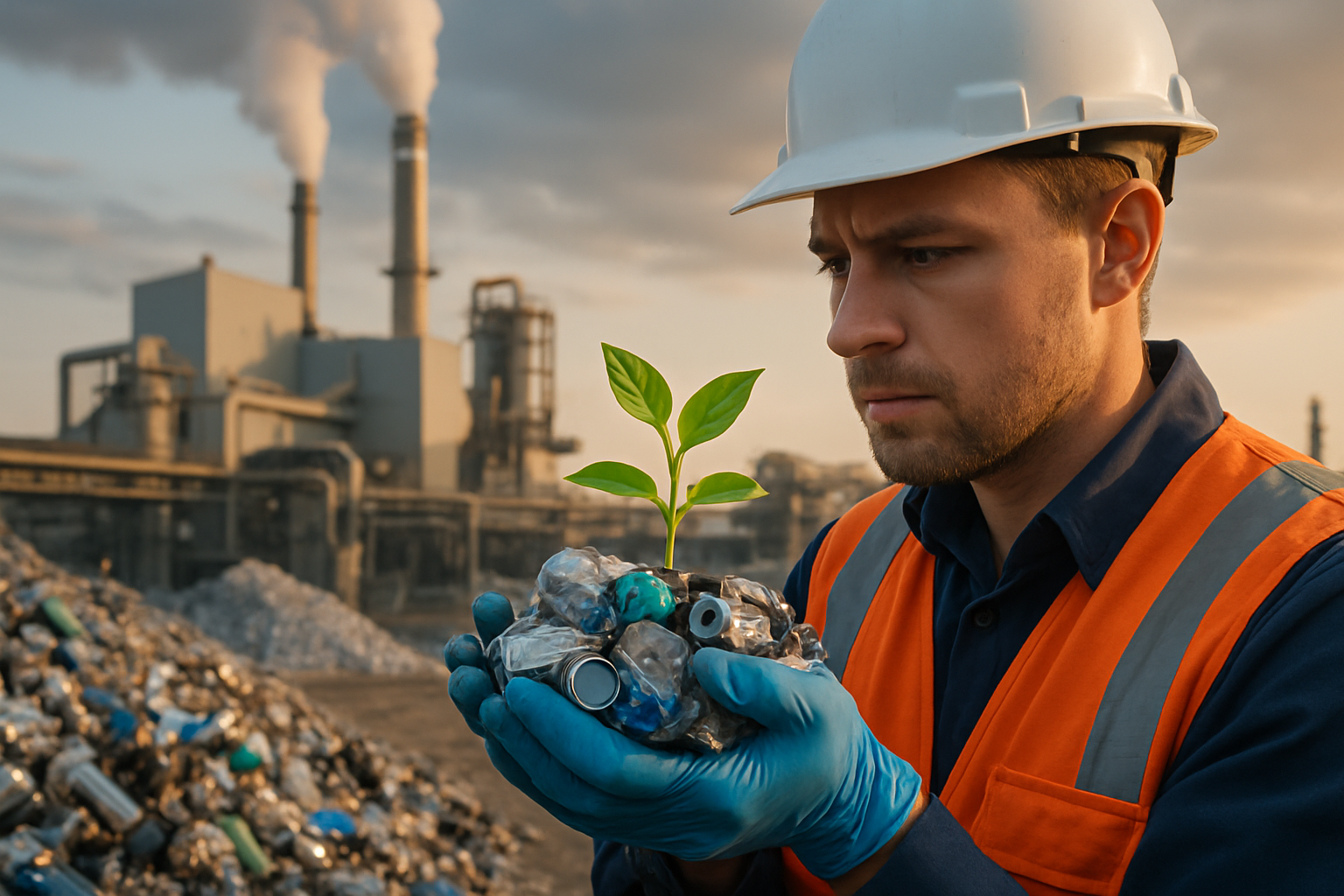"Innovative Approaches to Industrial Waste Management"
Industrial waste management is a pressing issue that demands innovative solutions. This article delves into the latest strategies being employed to tackle this challenge, offering insights into their potential impact on business operations and the environment.

The Historical Context of Industrial Waste Management
Industrial waste management has been a concern since the dawn of the industrial revolution. Early practices were rudimentary, often involving the indiscriminate dumping of waste into the environment. However, as the environmental and health impacts of such practices became apparent, regulations were put in place to control waste disposal. Over the years, these regulations have become increasingly stringent, pushing industries to seek more sustainable waste management solutions.
Current Trends in Industrial Waste Management
Today, the focus of industrial waste management has shifted from mere disposal to waste reduction and recycling. Many industries are adopting the principles of the circular economy, aiming to minimize waste generation and maximize the reuse and recycling of waste materials.
Innovative technologies are also being employed to transform waste into valuable resources. For instance, some industries are using waste-to-energy technologies to convert non-recyclable waste into energy. Others are using advanced recycling technologies to recover valuable materials from waste.
The Impact of Innovative Waste Management Strategies
The adoption of innovative waste management strategies can have significant benefits for businesses. Firstly, it can lead to cost savings, as waste disposal costs are reduced and waste materials are transformed into valuable resources. Secondly, it can enhance a company’s reputation, as consumers increasingly prefer companies that demonstrate environmental responsibility.
However, these strategies also pose challenges. The initial investment in waste management technologies can be high, and there may be technical challenges in implementing these technologies. Furthermore, the success of waste management strategies often depends on the availability of markets for recycled materials, which can be uncertain.
Practical Insights for Industrial Waste Management
-
Prioritize waste reduction: The most effective way to manage waste is to not generate it in the first place. Implement strategies to reduce waste generation in your operations.
-
Invest in recycling technologies: Recycling can transform waste into valuable resources. Consider investing in technologies that can recover valuable materials from your waste.
-
Explore waste-to-energy options: If recycling is not feasible, consider waste-to-energy technologies. These can convert non-recyclable waste into energy, reducing disposal costs and providing an additional source of energy.
-
Engage stakeholders: The success of waste management strategies often depends on the support of stakeholders, including employees, customers, and regulators. Engage these stakeholders in your waste management efforts.
Conclusion
Innovative approaches to industrial waste management offer promising solutions to a pressing challenge. By adopting these strategies, businesses can not only reduce their environmental impact but also realize significant operational benefits. However, the successful implementation of these strategies requires careful planning, investment in technology, and stakeholder engagement.





